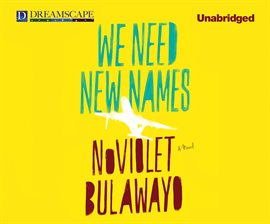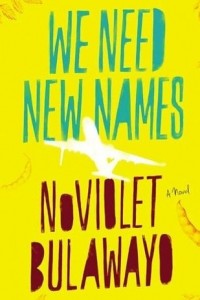


“Like we’re in the crazy parts of the Bible, there where God is busy punishing people for their sins and is making them miserable with all the weather.” “It’s like we’re in a terrible story,” Darling complains of the terrible amounts of snow. In the second half of the book, Darling leaves the unnamed country to live with her Aunt in “Destroyed Michygen,” or Detroit. She is taking all the issues flattened out by aid appeals and rhetoric and weaving a story around them that defies you to resent Darling for her departure. “She doesn’t say anything back,” Darling observes, “like maybe I just barked.”Ĭhapter by chapter, Bulawayo ticks off the issues that a state of the nation novel an African should cover - the hypocrisies of the church, elections, the AIDS epidemic, political violence - and beats some subtlety back into them with the hard true sound of Darling’s voice.īulawayo isn’t painting by numbers, but doing something rather more wicked and knowing. At church, she watches the adults “toiling up the mountain, trying to look like angels in their flowing robes that have now lost their whitneness.” Later, when she is given a gift by an aid worker Darling says “Thank you very much,” to show the woman she knows English. No one holds back from truth-telling in We Need New Names, but especially Darling. “Right now she is busy cleaning kaka off some wrinkled old man.” “Well, go, go to that America and work in nursing homes,” Bastard says to Darling, when she brags about her Aunt in America. They are all decked out in cast-off T-shirts given to them by aid-workers, advertising brands they can’t afford and colleges they’ll never attend. The kids’ names give you a clue of how wanted they are at home.

Every day Darling leaves Paradise to traipse around the city’s nicer neighborhoods in a pack of children, stealing guavas, defecating on trash heaps, while around them their country unravels. As the book begins she is around 10 years old and living in Paradise, one of the worst slums in an unnamed African country. The instrument for all this music is Darling, the book’s skeptical, fiercely opinionated narrator.


 0 kommentar(er)
0 kommentar(er)
